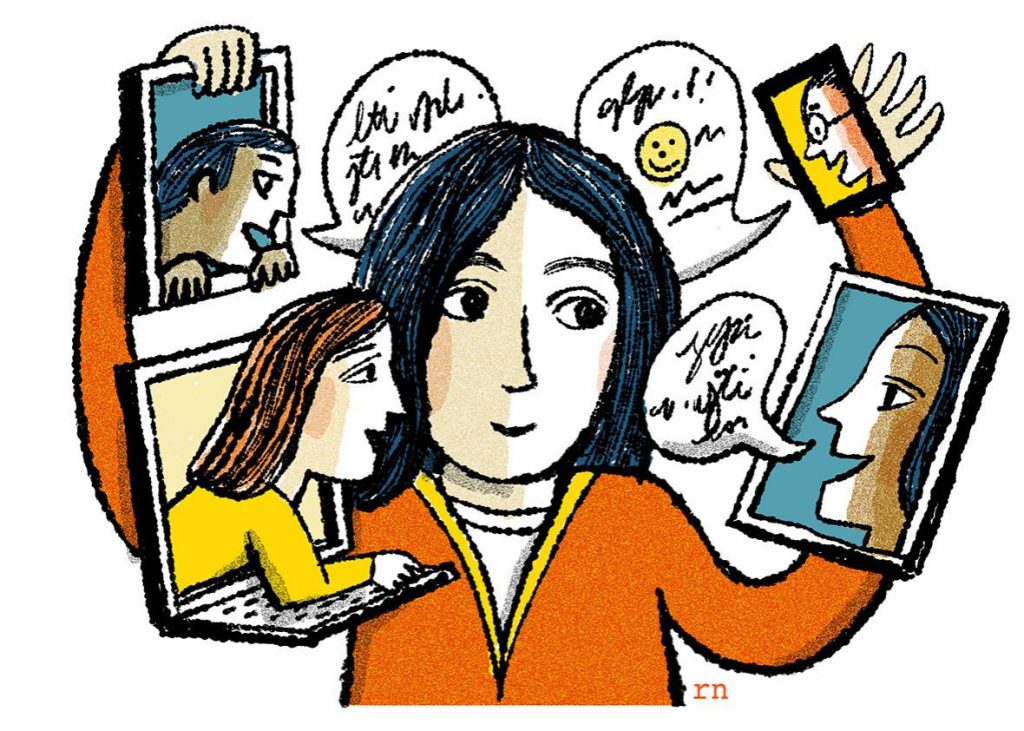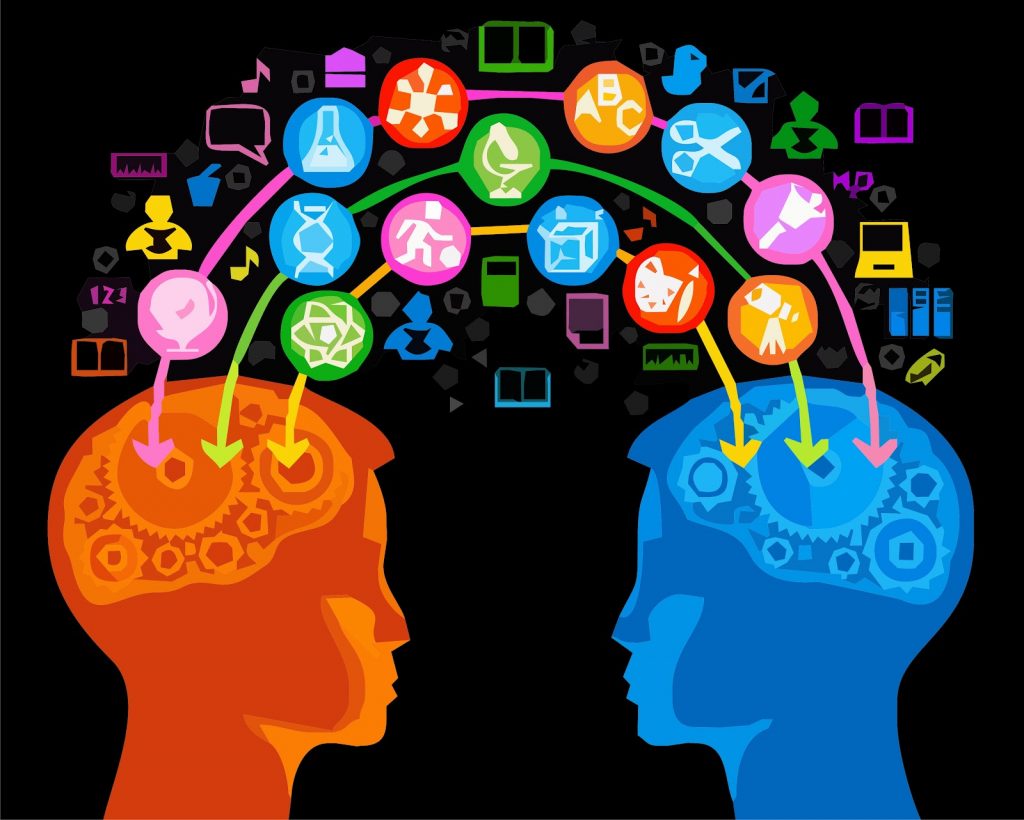Blog 10:
In my first blog post created months ago, I wrote my expectations for the course were more in line with a desire to learn about the evolution and development of personality. More specifically, I was interested in how much of what we consider to be integral true parts of ourselves come directly from the environment around us, including our culture, society, and peer group. My understanding of human personality has always been in favor of the nature approach because so many people in my life are similar to those in their families. However, this course has changed my perspective on how we develop our personalities because of what we have studied involving our responses to the effects of external factors. For example, if we were to assume a low-income family with drug-addicted parents have internal unresolved issues to explain away their addiction and why they cannot take care of their children, that would have sounded reasonable to me five months ago. In light of the material we have learned in this class, I now would expand my perspective of our fictional family, and consider the possibility they have a lack of community support, police oppression, or perhaps a culture within their community that does not favor taking care of children and their needs over abusing drugs which is hard to overcome.

I believe my experience in this course has satisfied course objectives due to how much easier it has become for me to analyze situations and people and see things from a more holistic perspective. I really cannot imagine anything that I would have done differently in this course except to try and start some assignments more ahead of time. However, this is not a problem specific to this course, as my procrastination has always been an issue for me but has gotten better in recent semesters. I used to feel overwhelmed with the weekly content in relation to what I was studying in my other courses, but implementing a two-class-a-day limit drastically improved my learning experience this term. I typically would try and access and learn some material from each of my four to five classes each day but realized at the beginning of this semester how problematic that approach can be. As a result of changing my learning style, I was able to better process the weekly material and actually relate it to my real-world experiences. I do not have any regrets from taking this course and look forward to my future career as a counselor enhanced by the skills I have learned from this incredible class.
Blog 9:
Perhaps my favorite part of this course is how diverse the material we cover tends to be and how often it relates to the real world. It can be hard to study something abstract such as abnormal psychology when you really have not had much direct exposure to people with mental illness yet. In this class, however, I find myself almost always to relate the weekly material to something actually going on in my life. One of my favorite things we have discussed is about predatory advertising and how detrimental an effect it has on our society. Our module on the influence music has on a developing relationship was also very interesting to me as my partner and I connected over our shared love of Disney musicals. I also found the unit on emotional intelligence particularly worth the read due to the fact many of the problems facing the couples I know are the result of a lack of it. It is so important to practice self-awareness and get in touch with your own emotions in order to better understand those of whom you love.

I chose this image because I feel it represents the inherent human side to ourselves despite gender and how we are not truly as different as we think despite what society has led us to believe.
After reading the material for our last module on conflicts between men and women, it is clear how much that relates to our study of harmful sexist advertising. Our history as a nation has been colored by deeply rooted gender stereotypes, and it has occurred to me how much these continue to even subconsciously affect the way men and women interact with each other. In fact, this concept also ties into what we have been learning about recently in my family guidance class. We are currently focused on conflict within families and how they deal with stressors and how crucial it is to have equal communication during times of crisis. I mean, just think of how many horror movies would be over in the first ten minutes if the stubborn husband just listened to their wives instead of calling them paranoid! We have much to learn in this study of male to female communication but the results of this research would inevitably be a more harmonious society.
Blog 8:
For the most part, people tend to upset each other for reasons other than their specific gender differences. I believe more often than not, the reasons why someone is bothered by someone else is due to their behavior in general and not related to their biological sex. However, in heterosexual relationships, there are definitely some considerable differences within how typical problems arise. Many of my friends are in heterosexual relationships and due to them knowing that I am a psychology student, they love to bring their problems to me in a search for solutions. As a result, I have heard of many issues that are in fact the result of gender differences.
I will use my best friend’s marriage to his wife as the example for this post (and of course keep their names confidential). My friend, who we will call Mark, spends a lot of time outside of the house in the past two years. His wife, who we will call Rachel, is constantly upset with him for not staying home at least five days a week. Despite Mark informing her last year, this was in part due to their romantic issues which stem from her lack of self-confidence, Rachel is upset that he does not want to help her work on her issues and instead hangs out with friends. I find that men often see things at face value, and this can ultimately be a big problem. Women, on the other hand, see the bigger picture and often forget that men fail to do the same thing all the time. From what I have gathered, it is just not nearly as an easy task for men to see all sides to an issue, and therefore their wives usually end up feeling neglected when it is not entirely intentional.

I often tell my friend that at its core their relationship problems arise from communication issues, but he tends to overlook the importance of this and instead relies on bad coping mechanisms. I chose the above image because it represents to me the physical closeness many married couples have but the extreme mental disconnect that can exist below the surface.
Blog 7:
As an adult in a committed relationship with a full-time job, I have to engage in self-regulation almost every hour of every day. Often times, I fight with my emotions, the most problematic of them being anger, throughout the day to deescalate my feelings to interact with others appropriately. The term used by Linda Ferguson (2012) in her video on emotional intelligence to describe this action as “flooding.” Our senses pick up on something, or we have certain thoughts, and they provoke intense emotions at times that spill over into our body and can create action. I would argue that most of what defines us as individuals arises from how we self-regulate, and if we are able to properly redirect our emotions to avoid having a certain reaction that we might regret. At the same time, we have to become in touch with our feelings in order to self-regulate emotions such as laziness, and the relationship between these aspects of cognition is incredibly important.
Source: Ferguson, L. (2012 August 28). Self regulation and emotional intelligence. YouTube. Retrieved from: https://www.youtube.com/watch?v=_e5YDCwRuhA

We are undoubtedly a combination of heart and mind, meaning those who value thoughts over emotion or vice versa and we cannot deny this aspect of the human mind.
Blog 6:
Jean Kilbourne’s entertaining and provocative TEDx Talk on the harm that predatory advertisements have on women (and men) was well worth the watch. As an avid fan of the show Mad Men, I have always had an interest in how advertising has changed over the decades. Clearly, the themes of sex and youth still run rampant as they did years ago, but the problem with unachievable images has only gotten worse. Since programs such as Photoshop have gotten so advanced, even TV shows that we watch have filters applied to make everyone look perfect. As Kilbourne (2014) pointed out, the overall effects of our culture based on computer-generated nonsense are devastating.
Growing up, even as a man, I used to see advertisements such as those from Calvin Klein with men and teenagers with perfect bodies, and I felt terribly inadequate. In fact, so much of the development of my self-confidence was stunted due to the portrayal of average-looking people in the media. For example, in the show Drake & Josh, Drake was stereotypically good looking, and everything in his life always worked out and he got plenty of dates. On the other hand, Josh was overweight, clumsy, emotionally erratic, and constantly failing at things he attempted to do. This was only one of a few examples of men being objectified, and I can only imagine how women feel since it is so rampant for them in our culture.
“Five Examples of Harmful Advertising”
We can only change this situation of predatory and psychologically damaging advertising by becoming advocates to rally for the cause. Our society has changed before, and it can change again, but only if we reject these advertising tactics as a collective. In the same way that Kilbourne has hope for the future, I too believe we can change this harmful aspect of our society.
Source: TEDx Talks (2014). The dangerous ways ads see women | Jean Kilbourne | TEDxLafayetteCollege. Retrieved from: https://www.youtube.com/watch?v=Uy8yLaoWybk
Blog 4:
To prepare for our first exam, I spent several days prior to taking the test reading my textbook while on lunch at work and when I could at home. In all honesty, though, social psychology is a class that I learned about in community college so a lot of the material is familiar to me. However, the topics itself never gets old for me as the amount of connection we have to each other with technology is incredible. We have received the opportunity to study social interaction and how we connect with each other on an unprecedented level which fascinates me. As you can tell, I really enjoy learning about social psychology and studied my notes from community college and the content from this course to earn 96% on our first exam. 🙂

I chose this image because it represents to me how connected I feel to all of the closest people in my life with the assistance of technology, and how it inspires me to study hard and perform my best in this course.
Source: Hess, A. (2015, September). Constant connection. Retrieved from: https://slate.com/technology/2015/09/love-and-connection-in-the-internet-age-weve-got-this.html).
Blog 3:
After reading Dr. Selterman’s article on music and relationships, I have to say I agree with his thoughts on its ability to connect people and blossom relationships. The most interesting research shared in his article is how many relationships begin by talking about music and then transition into other topics as time goes on (Selterman, 2012). If I were to think critically about the beginning of many of my current friendships, we met at work and bonded over various surface-level topics initially but then began to transition into more serious topics as time went on. I have been inspired to ask those close to me what music they really enjoy listening to because of this article. In my relationship with my boyfriend, we bonded over music years ago at work and found that we both love Disney musicals and this set the stage for us to move onto other topics. One of my close friends and I talk about music often and she is currently my best friend out of everyone else, so perhaps Dr. Selterman is onto something here.
Source: Selterman, D. (February 21, 2012). “Soul meets body” – how music and relationships are connected. Science of Relationships. Retrieved from: https://www.luvze.com/soul-meets-body-how-music-and-relationships-are-connected/

Without a doubt, the type of music someone prefers to listen to can say a lot about their personality and their emotional state of mind. I have always found sharing music preference as a great way to establish the foundation for a personal relationship. In fact, some of my most memorable experiences come from listening to certain albums with my friends in high school and bonding over our favorite artists. Music transcends the monotony of everyday life and can remind us of how beautiful a world we live in and how valuable life really is.
(Retrieved from: https://ccrma.stanford.edu/~sangwlee/256a/SharePhone/)
Blog 2:
I have always had an interest in being successful academically because of my interest in learning and understanding the world. My grades have always been superior because I was expected to succeed in school by my family- failure was not an option. I had seen how much my brother was grounded and punished for failing classes, and even though my parents were fine with B’s and C’s, I always chased A’s every semester. Once I got into college, I was much more dedicated to achieving a 4.0 GPA because it was something that I was paying for. In my opinion, those who view college as an excuse to party and engage in various activities not related to class are wasting their time and money. However, I do not exactly have a right to tell others how to spend their money, but this is my viewpoint that I have in regards to my studies. Seeing my classes as a pursuit to learn as much as I can and to achieve great grades makes me feel strong and empowered.
In terms of my self-efficacy, I believe that my experiences growing up, such as living with several different step-families, my own father passing away, being bullied in school because I am gay, and struggling to make ends meet, have improved my resolve. When confronted with stressors in life, I use them as an opportunity for self-improvement and to learn how to better deal with stressful events in the future. Of course, I am only 24 years old and are still figuring things out, but I have always felt like I had to rely on myself more than anyone else. As a result, I have become humbled by my failures, proud of my accomplishments, and developed an interest to help others in the field of psychology. My results on the Self-Efficacy Test were 32, and I believe this accurately reflects my perspective on how to deal with the stress of daily life. In order to continue to improve as a student, I plan on opening up myself to asking for help from others when needed, which my amazing partner Alex has helped me understand the importance of.

I chose this image for this blog post because it represents how much my boyfriend has helped me grow as an individual.
Blog 1:
Faced with many options for my elective to take this semester, I decided that going with Social Psychology would be the best fit for a few reasons. Over the years, I have witnessed many changes in my personality in a social context that have been beneficial to my well-being. For example, I used to be terrified to speak to nearly everyone up until the middle of high school because I was afraid of being ridiculed for “talking gay.” I faced a lot of bullying up until that point in my life, and frequently arose from social interactions, which despite having a deeper voice, was characterized as “gay” by my hand mannerisms and appearance. Upon coming out in high school after gaining confidence from joining the Gay-Straight Alliance, I was met with a lot of support from friends and family. At this point, I no longer cared about being bullied, and actually felt pity for people who wanted to tear others down because I recognized they often had low self-confidence.
Studying social psychology, as a result, immediately appealed to me because I would like to further my understanding of social interactions and the evolution of personality in this context. I expect to learn more about how human beings develop their sense of self partly in response to feedback they receive from others. At the same time, these feedback channels intersect, and I then wonder about the other influences on the development of self-construct such as the media and culture. Using a more scientific approach to this subject, which appears to be a core aspect of this course, I believe will allow me to be more objective in my analysis of others.
In order to ensure that I succeed in this class, I plan on being consistent with my reading of the textbook and participation in weekly assignments. I usually buy the paper version of the required text and read it on occasion only when a chapter does not make a lot of sense to me. However, this term I have decided to purchase only e-Textbooks and read them on my tablet where I can easily take notes and highlight content that stands out to me. I plan on reading every chapter this semester at the beginning of the week to allow time for the material to “sink in” and give me the rest of the week to complete further research if necessary. As you can probably tell, I am very excited to begin this journey of studying social psychology this semester.

I chose this image because the definition of social psychology is constantly changing. I anticipate much of what we will learn this semester will include material about how our communication styles have changed since the creation of the Internet with increased accessibility to social media.




